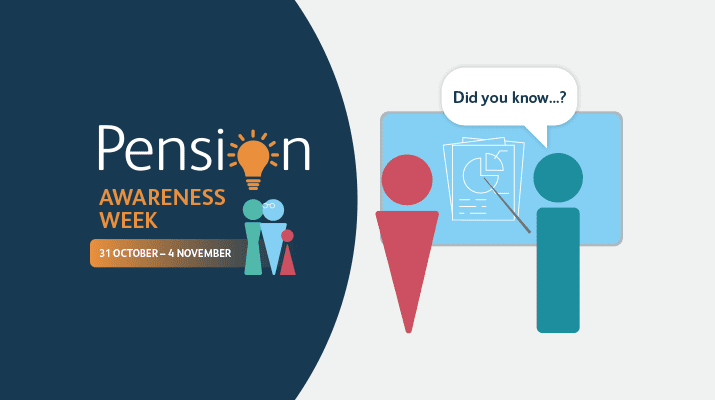As with many things in life, what we think we know about something isn’t always the truth – and your defined benefit pension is no different. There are things you may have heard on the grapevine that aren’t actually true – from the contributions you pay to the benefits you get when you retire.
To help you separate the facts from fiction, here are six common misconceptions about defined benefit pensions – and the facts behind them.
1. I don’t need a workplace pension because the Government will look after me.
Not always. While you will get a state pension when you retire (a regular payment from the government), depending on your work history, you may not qualify for the full amount (£203.85 per week). So, you should think carefully about whether this amount of money will support you to give you the retirement lifestyle you want.
2. Pensions are too risky
False. While some private pensions carry an element of risk depending on the funds they invest in, your defined benefit pension builds up each year to give you a secure and guaranteed income when you retire. Plus, the pension you build up is added to your total from previous years and adjusted to stay in line with inflation and the cost of living.
3. A personal pension offers more flexibility than a workplace pension
Not always. While personal pensions can offer you more in terms of your investment decisions, they are dependent on different factors, such as provider charges, contribution rates and how well your investments perform. Fluctuations in investment markets can also have an impact on your pension’s value.
Like a personal pension, your workplace pension allows you to increase or reduce your contributions (depending on your scheme) to give you flexibility around your retirement planning. But, because it’s a defined benefit scheme, it also gives you the peace of mind that you will have a secure, guaranteed, inflation-proofed retirement income.
4. The pension contributions I pay are very high compared with the pension benefits I will get at retirement
False. Your contributions are based on how much you earn. Your employer also contributes to your scheme and, if you earn enough to pay tax, you will get some tax relief too. This means the contributions you make are less than the benefits you’ll get when you retire.
Once you factor in the employer contributions and guaranteed income you’ll receive when you retire, as well as the ill health, death and redundancy benefits, it’s understandable why the schemes are considered value for money and such a great benefit.
5. The benefits payable with the CARE (Career Average Revalued Earnings) scheme are much lower than with the final salary scheme
False. Final salary scheme benefits are usually based on your salary in your final year of service, which means they tend to favour members with a longer service, or who have been promoted or had a pay rise late in their career.
CARE scheme benefits (introduced in 2014 – 2015) are spread more equally across a member’s service as they are based on earnings during the whole of their membership. So, they can be more beneficial for lower-paid workers and those whose earnings don’t rise sharply towards the end of their career.
6. I can depend on my savings, property or inheritance as my pension
False. While you can use things to help fund your retirement, solely relying on them can be risky. For example, the circumstances of those providing your inheritance could change, so you can’t guarantee that money will support you during your retirement.
Also, when it comes to relying on the sale of your property, you may not get the amount of money you hoped for, especially with the ups and downs of the housing market.
Get the facts about your scheme
If you’d like to learn more about your pension scheme and separate the myths from the facts, visit our Schemes page. Or if you have any queries about your pension, visit our Help Hub.



